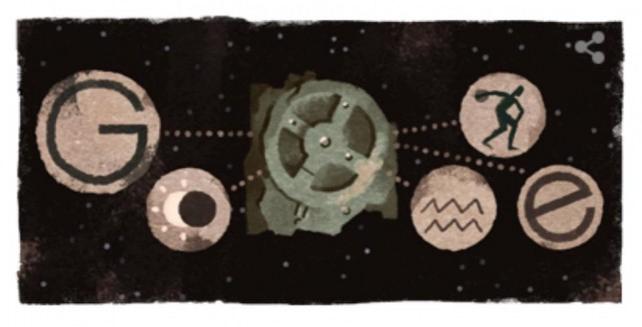Google celebrates discovery of world's oldest computer

Google celebrated on Wednesday the 115th anniversary of the discovery of the world's oldest analog computer in a Roman shipwreck off the coast of the Greek island of Antikythera on May 17, 1902.
The device is thought to be the work of Greek scientists, who built it roughly around 100 BCE—over 2,100 years ago.
As it often does on such memorable occasions, Google replaced its usual logo with a stylized Doodle on the day of the anniversary.

"Today's Doodle illustrates how a rusty remnant can open up a skyful of knowledge and inspiration," the company said.
The ship had been discovered two years earlier, in 1900, but archaeologist Valerios Stais was the first to notice a peculiar set of corroded bronze gears in the wreckage.
"That corroded chunk of metal turned out to be part of the Antikythera Mechanism, an ancient analog astronomical computer," Google said.
The seemingly anachronistic contraption—similar clockwork devices only became widespread over a millennium later—sparked the curiosity of generations of researchers, whose years of study concluded that the Antikythera Mechanism was used to predict star movements for purposes of timekeeping, navigation, and astrology.
"The Antikythera Mechanism tracked planetary positions, predicted lunar and solar eclipses, and even signaled the next Olympic Games. It was probably also used for mapping and navigation. A dial on the front combines zodiacal and solar calendars, while dials on the back capture celestial cycles. Computer models based on 3-D tomography have revealed more than 30 sophisticated gears, housed in a wooden and bronze case the size of a shoebox," Google said.
The Antikythera Mechanism is currently housed in the National Archaeological Museum of Greece. — GMA News





